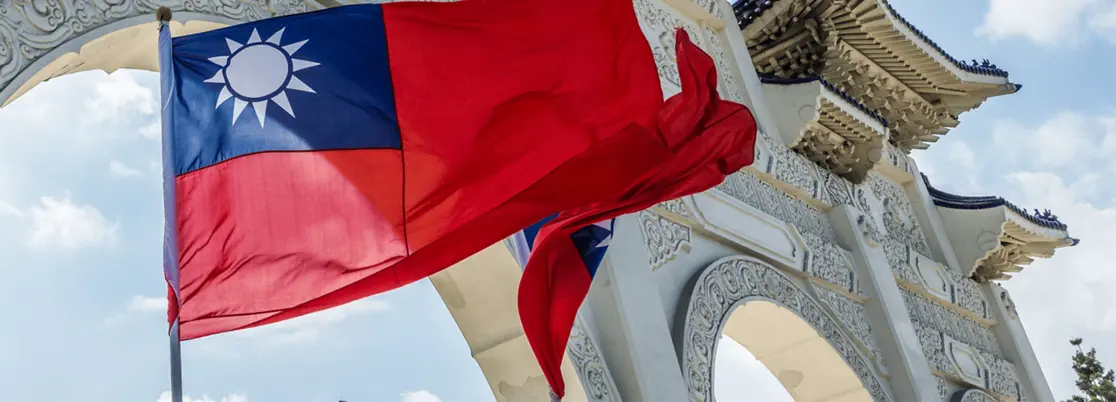Summary
- What’s next? Beijing has expressed its disappointment at the re-election of the ruling Democratic Progressive Party (DPP) as it makes China and Taiwan’s peaceful re-unification increasingly elusive. The China-hawkish DPP has now won three elections in a row and its incoming president, William Lai, is considered by Beijing as aiming to further distance Taiwan from China, possibly aiming for independence. However, the DPP largely intends to maintain the current state of cross-strait relations.
- Foreign relations: The DPP aims to continue to diversify away from China to achieve stronger defence and international partnerships to act as a deterrent against potential Chinese actions.
- Market reaction: The DPP victory has largely been expected, but market response will depend on how China reacts to the DPP victory in coming weeks and months, with potential scenarios ranging from continued status quo to ‘middle road’ escalations. The latter could impact the New Taiwan dollar (TWD) value, real estate and stock market, and create regional economic disturbances.
What are the main geopolitical implications of this election outcome?
The DPP aims to maintain the status quo in cross-strait relations but firmly opposes the 1992 Consensus and the ‘One China’ policy, including Beijing’s proposed ‘one country, two systems’ model for reunification.
Nevertheless, the DPP is unlikely to seek an independence referendum due to limited public support and the political difficulty in making it happen. The party also failed to secure a governing majority, meaning efforts to distance itself further from China will be limited by the opposition.
The DPP will seek to deepen Taiwan’s ties to the US and will continue to comply with U.S. tech restrictions. In line with the New South Bound Policy, the DPP is focused on reducing reliance on China by enhancing cooperation with 18 countries in South Asia.
William Lai’s broader strategy includes bolstering defence capabilities and forging deeper international partnerships to show that the risks and costs of Chinese actions across the Taiwan Strait will be too high.
How do you expect China to react and how do you see China-Taiwan scenarios evolving?
We expect tensions with China to rise compared to 2023. We see a bigger likelihood this year for ‘middle road’ escalation – a step up from the current pressures occurring under the ‘status quo’ - as well as a somewhat bigger risk of military confrontation.
This ‘middle of the road’ escalation could entail scenarios like a temporary blockade of Taiwan, which would alarm markets, or a non-military takeover, which in many ways seems more likely than an invasion due to various domestic factors such as the unpreparedness of the Taiwanese populace and military, internal distrust amongst the government and military institutions, and uncertainty over U.S. support.
What are the main domestic policies that will be in focus under the new government?
Regarding domestic policy, apart from China relations, energy security will be the focal point. Because it failed to achieve governing majority, there will likely be resistance to the DPP’s 2025 nuclear-free objective.
Lai wants to strengthen the economy and tech sectors, implement industrial reform and industrial upgrades, provide better healthcare for the elderly, support for education and childcare, and reform the housing sector.
If China were to impose a customs quarantine – essentially banning major imports and exports – concerns about supplies and social unrest could arise, impacting the stock market.
What are your macroeconomic views for Taiwan?
Economic growth is set to decelerate in Q4 2023 and Q1 2024 before picking up in H2 2024. Despite a technical recession in early 2023 and a prolonged export slump, a revival in export orders is underway.
Economic disengagement from mainland China and an absence of sufficient compensatory support point towards lower long-term growth potential.
What will be in your view the market impact of this election outcome?
On the market impact of the elections, there will likely be growing risk perceptions, in particular the closer we get to Lai’s inauguration on May 20. However, much will depend on China’s reaction to the DPP victory. If the status quo continues, little will change. If we enter a ‘middle road’ escalation, the market reaction would depend on the type of escalation.
For example, if China were to impose a customs quarantine – essentially banning major imports and exports and allowing only essential foods and fuels into the country – concerns about supplies and social unrest could arise. Such a scenario would likely lead to a depreciation of the TWD and impact both the real estate and stock markets.
A more extreme scenario, such as a full blockade prohibiting all imports, disruption of communication cables, and a sea/air blockade, would trigger a regional ‘risk-off’ event, severely impacting Asian stock and real estate markets and leading to foreign exchange (FX) shortages.





